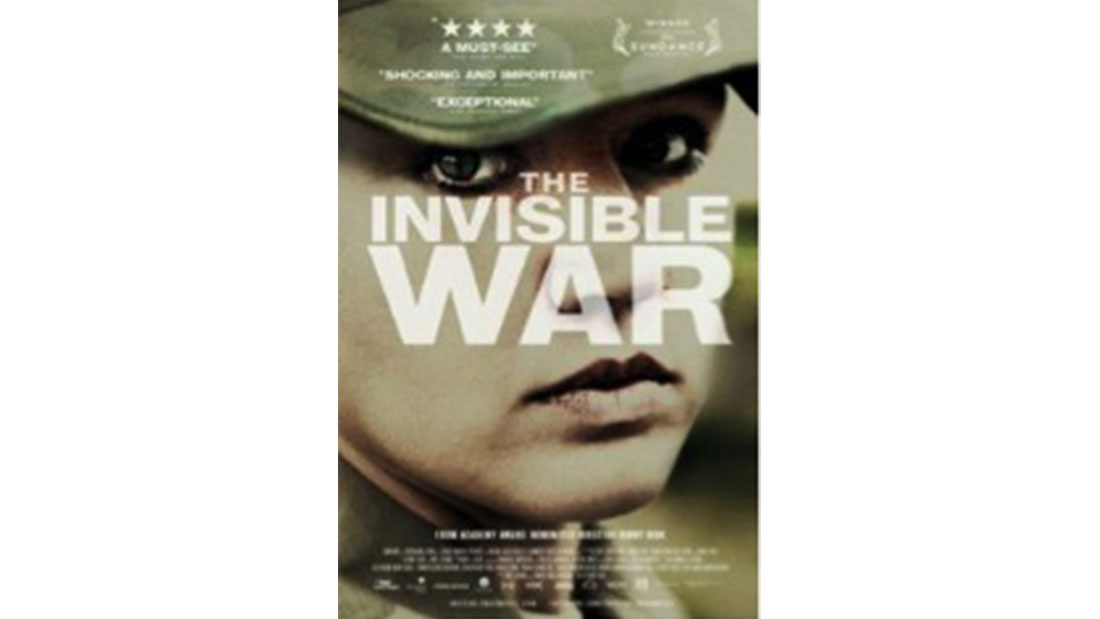
15 Jun The Invisible War
It’s been a shocking week, with several organisations apologising for shameful incidents that violate the dignity and rights of women, members of ethnic minorities, indigenous groups and homosexuals. The events have been so degrading that even the most cynical would have trouble denying the line was crossed and the boundaries of decency pushed beyond their limits.
Let’s recount the week. Firstly it was discovered that Police in Sunshine, then at the regional Bairnsdale station had produced racist beer can holders denigrating Sudanese and Indigenous members of their communities respectively. Then the menu for a Liberal Party fundraising launch that described a quail dish in terms of Prime Minister Julie Gillard’s anatomy, went viral. This incident was followed by repeated and intrusive questioning by radio journalist Howard Sattle about the sexual orientation of the Prime Minister’s partner. Not only did the interview demonstrate absolute lack of respect for the Prime Minister or her office. It played on and promoted bias against homosexuals. Throughout this interview Sattler hid behind the statement ‘It’s not me saying it, it’s what people are saying….’
Finally, ninety Defence personnel were implicated in the production and distribution of pornographic material involving the illicit filming of women. Some were senior officers. A review of Australian Defence forces in 2012 revealed that one in four women had been sexually harassed in the past five years. In 1997 the figure was 41% of service women and 12% of men.
However the direct and unequivocal response to this latest incident by Lieutenant General Morrison, Chief of Army is being heralded as a model of how to address sex abuse. Take a moment to view his statement released to all military personnel.
As a leader Morrison not only makes it absolutely clear where he stands on the question of sexual harassment and abuse in the armed forces. He demonstrates the outrage warranted by these violations.
Leaders like Morrison rightly acknowledge that the incidents now coming to light are not the behaviour of a few bad apples, but indicative of widespread cultural and systemic failings.
Such systemic failings are not limited to the Australian Defence forces. US Studies suggest that rape is twice as common in the army as it is in the general community. Half a million women have now been raped in the US military, with one in ten men raped by their colleagues.
In my previous blog ‘Facing Up to Organisational Blindpots’ I explored our attachment to our identity and other factors that contribute to dysfunctional cultures. Organisational insularity and the illusion of being beyond the reach of the mainstream society’s rules and ethics is another major trap. Statements such as “There is the right way, the wrong way and the army way” perpetuate this mindset.
I encourage any leader interested in understanding the dynamics that lead to cultures of widespread harassment and abuse to view the documentary The Invisible War, a powerful expose into the US military’s failure to address the high incidence of sexual assault within its ranks.
The documentary vividly illustrates the consequences of:
- Failing to address harassment in the form of derogatory comments such as referring to women as walking mattresses
- Ignoring boundary violations such as officers found asleep in the beds of women who were their direct reports
- Over reliance on power in all its forms whether positional power, physical, verbal or sexual aggression
- Taking for granted or advantage of the collective and associative power that comes from being a member of a dominant group, even in small ways and seemingly harmless ways
- Officers complicit in modelling and encouraging harassment
- Misplaced Loyalty In the 1991 case of the Navy’s Tailhook convention scandal though 200 men were present and 1500 interviews undertaken, the investigator reported widespread stonewalling.
- Blaming the Victim and refusal to believe victims accounts, despite eye witnesses testimony in some instances. Criminal investigators describe being ordered to ‘interrogate claimants for false statements until you get the truth out of her.’
- Institutionalised Retaliation against Complainants Victims describe difficulties making reports and institutional threats of repercussions such as loss of income, rank and schooling. Four women who reported rapes at Marine Barrack women were subsequently investigated themselves.
- Promotion and Awards of accused perpetrators whilst still under investigation
- Inadequate Process such as immediate line commanders, who lack legal training being responsible for how and whether investigations proceed.
- Lack of accountability for perpetrators and for key personnel and leaders responsible for achieving cultural change.
The documentary Invisible War won the People’s Choice Award at the Sundance Film Festival. It’s director Kirby Dick, used the film’s success to gain attention at the highest levels of the Pentagon. He did so by arranging private screenings for retired officers, veterans and the wives of active officers. Not surprisingly retired officers proved more willing to speak out about the issue.
In addition to seeing themselves as defenders of the peace, it is critical that all defence personnel recognise and come to terms with their potential to become the aggressor. The same is true for each of us. We are not just the victims of cruelty or abuse, we are capable of it. We need to pay attention to how our behaviours and what we say impacts others.
The events of this week suggest the military isn’t the only environment plagued by breaches of dignity and other human rights. In most cases more than one person was involved – either directly or indirectly. We are all exposed to inappropriate humour or other instances of colleagues crossing the line. From time to time we see individuals bullied or harassed. The question is what action are we willing take?
As Chief Major-General Morrison states: “the standard you walk past is the standard you accept.” Are you willing to voice your disapproval? Can you stand next to or near the victim of abuse, demonstrating support non-verbally? Who might you speak to, to address inappropriate behaviour?
Reflection
Think of a time you witnessed someone behaving in a way you thought unreasonable, discriminatory or harassing?
What specifically disturbed you most? What action did you take?
If you did nothing… what prevented you? What were you thinking? What were you feeling?
With the benefit of hindsight, list a few strategies and ideas for how you might engage if you saw something similar in future?


No Comments